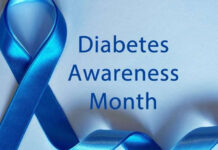
If you’re like most Canadians you think that health and medical research matter. Ninety-two percent of Canadians say that basic research should be supported by the federal government.
A new poll, CanadaSpeaks 2015, conducted by Vision Critical found that Canadians are more likely to vote for a candidate in this year’s election who supports increased funding for health care and health and medical research.
“I am proof of what research can do,” says Ottawa-based Maureen Smith who was born with a rare, disorder of the pituitary gland called congenital panhypopituitarism. Because of research, Smith has been able to lead a productive life, which includes advocating for Canadians with rare diseases who she believes could also benefit from health research.
Deborah Gordon-El-Bihbety, President and CEO of Research Canada, the lead partner in the poll, says, “Canadians continue to be dedicated to investments in health and medical research even in the face of the country’s ongoing economic challenges.”
- A very strong majority of Canadians think it is important for both federal and provincial governments to invest in the education and training of health and medical researchers.
- Four out of five Canadians agree that the federal government should support tax and regulatory policies that encourage private industries to conduct more medial research. Agreement is on par with results from 2009.
- Health and Medical Researchers are highly trusted. Almost half of Canadians rank Health and Medical Researchers eight or higher on a 10-point scale.
- Three quarters of Canadians say they are willing to share personal health information as long as it is kept confidential.
Smith is hopeful the poll results will lead to increased investments in health and medical research, which represents hope for millions of Canadians with diseases like hers. During childhood, Smith participated in a clinical trial in Montreal aimed at replacing the human growth hormone her body could not produce.
“I received the drug for six months at a time. For six months, I would feel sluggish and ill but then I would get the drug and for the next six months I would feel normal,” says Smith. “The trial worked very well and I grew to just over five feet. I always say ‘thank you’ to health researchers now and ask them to please continue working.”
As an adult, Smith encountered many challenges due to the inability of her body to produce endocrine hormones. It was health research that transformed her life and gave her hope for the future. “I’m training for my third 10K run this May, an incredible goal that no one could have predicted,” says Smith.










